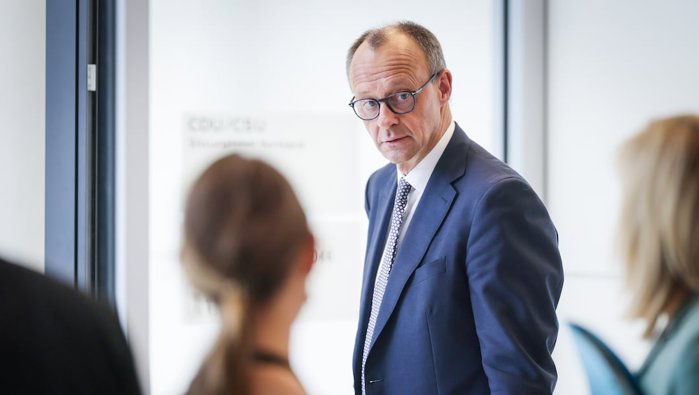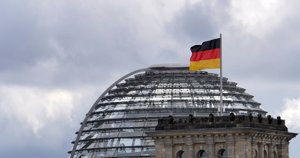
Merz Vows Crackdown on Antisemitism at Munich Synagogue
Merz promised political and criminal-law measures while acknowledging the ongoing security burden on Jewish institutions.
Germany’s Chancellor Friedrich Merz pledged a broad, sustained push against antisemitism during the rededication of the Reichenbachstraße Synagogue in Munich, an event that brought together national and local leaders and members of the Jewish community to mark the restoration of a landmark first inaugurated in 1931. In a deeply emotional address, Merz said the federal government would confront “every form of old and new antisemitism” and called for a future in which Jewish life in Germany no longer requires police protection Bundesregierung.
A Historic House of Worship Returns to Public Life
The Reichenbachstraße Synagogue—one of the few synagogues in Europe built in the modernist Bauhaus idiom by architect Gustav Meyerstein—was devastated during the November 1938 pogroms, functioned again after the war, and has now been restored close to its original 1931 condition. The reopening drew dignitaries including Bavaria’s Minister-President Markus Söder, Munich’s Mayor Dieter Reiter, community leader Charlotte Knobloch, and pianist Igor Levit Bundesregierung.
“Zero Tolerance”: Political and Legal Measures
Merz framed the response as both political and criminal-law enforcement, emphasizing that antisemitism would not be tolerated “even under the guise of freedom in art, culture or academia.” He linked the urgency to a documented rise in antisemitic incidents since October 7, 2023, and vowed government-wide coordination to protect Jewish institutions and public life. Bundesregierung.
A Contentious Line: Migration and Contemporary Antisemitism
Going beyond commemorative themes, Merz also argued that part of today’s problem stems from socialization in some countries where antisemitism is “state doctrine” and hostility to Israel is taught to children—remarks that quickly drew public debate. Supporters welcomed the candor; critics warned against oversimplification and stigmatization. Major outlets highlighted both the emotional tenor of the speech and the controversy around this passage stern.deDer Spiegel.
Architecture, Memory, and Civic Space
German officials and Jewish community leaders cast the synagogue’s return as both a cultural achievement and a civic commitment. The restoration—guided by archival research and period photographs—reintroduces a minimalist interior with wooden benches and colored leaded-glass windows, reaffirming the building’s place in Munich’s pre-war urban fabric and its post-war communal life. Organizers say the site will host worship, concerts, and lectures as a living venue for Jewish culture Bundesregierung.
Security Reality vs. Democratic Promise
Even amid celebration, the event underscored the reality that many Jewish institutions in Germany still operate under tight security. Merz acknowledged this gap between democratic ideals and day-to-day practice, arguing that a credible “never again” requires consistent enforcement against hate crimes, better prevention, and sustained public investment in education and remembrance work .Bundesregierung
Political Context
Merz has positioned antisemitism policy as a priority early in his chancellorship, which began in May 2025 following a second parliamentary vote. Recent reporting portrays a leader seeking to couple a tougher internal security posture with efforts to steady a polarized political landscape The Guardian.
Sources: Official chancellery transcript and brief of the Munich ceremony; contemporaneous coverage and analysis from Süddeutsche Zeitung, DIE ZEIT, Deutschlandfunk, Bundesregierung, stern.de, Der Spiegel, The Guardian






